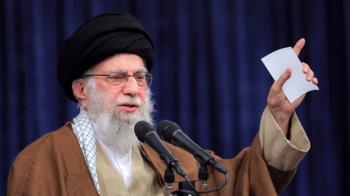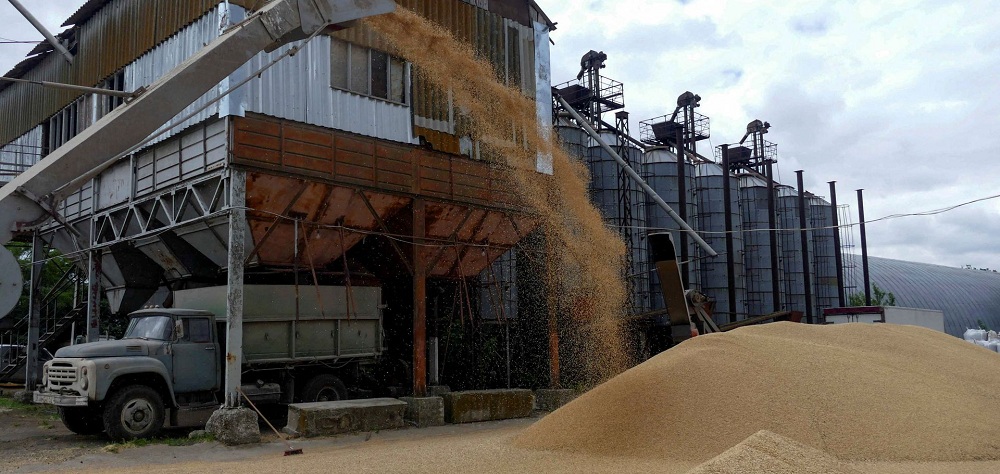Alwaght- While food crisis has been worsening especially in poor African and West Asian countries due to Ukraine war in recent months, rays of hope emerged on Friday from Istanbul after three months of rising and falling talks. Eventually, representatives of Russia and Ukraine, mediated by Turkey and the UN, signed an agreement allowing exports of 20 million tons of Ukrainian grains trapped in the Black Sea ports. The agreement is of pivotal significance for the rising food prices which according to the UN are bringing 47 million people to the acute hunger.
The agreement allows up to 5 million tons of grain per month to be exported by commercial shipping companies through safe lanes in Ukrainian waters, sources said.
Before the war, Ukraine was one of the largest exporters of grains and cooking oil in the world. According to the report of the Food and Agriculture Organization (FAO), Ukraine is one of the major exporters of wheat, barley, corn, and sunflower in the world, supplying more than 45 million tons of grains to the world market annually.
For example, in 2021, Ukraine provided 30.9 percent of grains consumed by Egypt, 7.7 percent by Yemen, 7 percent by Bangladesh, and 11.7 percent by Morocco. During the last six months, the price of food in Sudan has increased by 187 percent, in Syria by 86 percent, in Yemen by 60 percent, and in Ethiopia by 54 percent, reported Robert Mardini, the director-general of the International Committee of the Red Cross (ICRC).
Terms of agreement
While already 96 percent of Ukraine's grains are exported via the Black Sea, the Friday agreement allows for the opening of a safe corridor for commercial shipping to Ukraine's three key Black Sea ports of Odessa, Chornomorsk and Yuzhnyi. Although currently three Ukrainian ports are considered for wheat loading, there has been talk of exporting wheat from Mykolaiv, which is currently a battlefield, or the ports of Kherson and Mariupol.
According to this agreement, the Russian and Ukrainian parties refrain from attacking any of the commercial ships or ports mentioned in the agreement.
Also, a joint coordination center will be established in Istanbul to monitor the implementation of the agreement, which will see presence of representatives from Ukraine, Russia and Turkey.
One of the important duties of the commitee is to inspect ships that dock in ports. Russia has repeatedly expressed concern that Western countries may send weapons to Ukraine by ships.
The Russian worries come as Western arms continue to flow into Ukraine via different ways. The White House on Friday approved $270 million of arms and other equipment to Ukraine, increasing the announced military aids since the beginning of war to $7 billion.
On the other hand, Ukrainians are worried about the security of exporting their grains to the world markets. Also, they are worried that by clearing the country's coastal waters of sea mines under the agreement, which have been laid to stop the Russian naval access, important and strategic ports like Odessa will remain undefended. Kyiv leaders demanded security guarantees in the negotiations in this regard.
A senior aide to Turkish President Recep Tayyip Erdogan said that Turkey is ready to help Ukraine demine its ports. Experts estimate that this is possible within one or two weeks.
Turkey, which played an important role in the start and conclusion of the negotiation process and the implementation of the agreement, due to its dependence on grain imports from Ukraine, has suffered serious damage from the suspension of the export of this product. The country experienced 70 percent inflation in recent months.
The deal is reportedly valid for 120 days and may be automatically renew without further negotiation.
Reactions to Istanbul agreement
The agreement created rays of hope to reduce the global food crisis. The UN Secretary-General Antonio Guterres, who traveled to Turkey, tweeted: "Today, there is beacon on the Black Sea, a beacon of hope, possibility and relief in a world that needs it more than ever."
He further said that the deal in addition to stabilizing global food prices provides a relief to developing nations and the communities facing famine risks.
Shashwat Saraf, the director of regional emergency at International Rescue Committee, said: "The lifting of these blockades will go some way in easing the extreme hunger that over 18 million people in East Africa are facing, with 3 million already facing catastrophic hunger conditions.
But the reactions from the Russians and the Ukrainians caught more attention.
Referring to the landmark agreement, Ukrainian President Volodymyr Zelenskiy said Friday's agreement means that about 20 million tons of last year's grains worth about $10 billion can now be exported. However, he rejected any direct agreement with Russia and said Turkey and the UN were the parties to the deal.
The Russians seized the opportunity granted by the agreement to describe unfounded the Western media campaign that blamed Moscow for blockading Ukraine grains exports and causing global hunger and reciprocally described the Western sanctions as the reason behind the world food crisis.
"The signing of the Russia-UN memorandum again emphasizes the absolutely contrived nature of the attempts by the West to blame Russia for the problems with the supply of grain to world markets," said Russian Foreign Minister Sergei Lavrov, adding that the US and Western use of food for their "geopolitical adventures" are "unacceptable and inhumane."



























